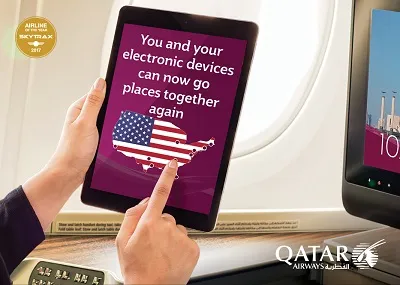
Controversial laptop ban continues to shrink
Jul 06, 2017

The ongoing debate over the controversial laptop ban is gradually diminishing as various stakeholders reassess its implications. Initially implemented in response to security concerns, the ban targeted specific routes and devices, raising questions about its effectiveness and fairness. Airlines, travelers, and experts have engaged in discussions to evaluate the balance between security measures and passenger convenience. As incidents of in-flight threats have decreased, there is a growing push for a more nuanced approach that prioritizes both safety and the technological needs of modern travelers. This shift reflects a broader understanding of the evolving landscape of air travel security.
Understanding the Context of the Laptop Ban
The ongoing debate surrounding the laptop ban has been a hot topic in various sectors, particularly in the aviation and technology industries. Initially implemented in certain regions, the ban aimed to enhance security protocols by restricting the use of larger electronic devices on flights. However, as time has progressed, the effectiveness and necessity of such measures have been called into question, leading to a gradual reevaluation of the ban.
Trends in Laptop Ban Regulations
Several countries have started to lift or modify the restrictions on laptop usage during flights. This shift can be attributed to advancements in security technology and a growing recognition of the inconveniences posed by the ban on travelers. The following table illustrates the timeline of changes in laptop ban regulations across different countries:
| Country | Initial Ban Imposed | Current Status |
|---|---|---|
| United States | March 2017 | Restrictions eased |
| United Kingdom | March 2017 | Restrictions lifted |
| Turkey | March 2017 | Restrictions still in place |
| Middle East Airlines | March 2017 | Restrictions modified |
Impact on Travelers and Airlines
The lifting of the laptop ban has significant implications for both travelers and airlines. For travelers, the ability to use laptops during flights enhances productivity and improves the overall travel experience. Many passengers rely on their devices for work, entertainment, and communication, making the ban a considerable inconvenience.
From the airlines' perspective, lifting the ban can lead to increased customer satisfaction and potentially higher ticket sales. Passengers are more likely to choose airlines that offer more flexible policies regarding electronic devices. As the competition in the airline industry intensifies, providing a seamless travel experience can be a critical differentiator.
Technological Advances and Security Measures
The decision to relax the laptop ban is largely influenced by advances in security technology. Enhanced screening processes and the use of sophisticated detection systems have made it easier for security personnel to identify potential threats without imposing strict bans on personal electronic devices.
Airports are investing in state-of-the-art imaging systems and artificial intelligence tools that can rapidly assess the contents of bags, allowing for a more thorough yet efficient security check. These improvements address safety concerns while maintaining passenger convenience, which is a win-win situation for everyone involved.
The Role of Public Opinion
Public opinion plays a crucial role in shaping policies related to the laptop ban. As travelers express their frustrations and the airline industry voices its concerns about competitiveness, regulatory bodies are compelled to reconsider the ban. Social media platforms and consumer advocacy groups have amplified these sentiments, pushing for change.
Surveys and studies indicate a significant percentage of the traveling public views the laptop ban as unnecessary and burdensome. This public pressure can influence policymakers to take a more balanced approach to security—one that prioritizes safety without sacrificing convenience.
Looking Ahead: The Future of Laptop Bans
As the landscape of air travel continues to evolve, it is essential to consider the future of laptop bans. While some regions may maintain restrictions due to unique security challenges, the overall trend seems to lean towards relaxation of such policies.
Travelers are encouraged to stay informed about the latest regulations and to voice their opinions to policymakers. The ongoing dialogue between the public, airlines, and government agencies will play a pivotal role in shaping the future of travel regulations.
Conclusion
In conclusion, the controversial laptop ban is gradually shrinking as more regions reassess the necessity of such policies. With advancements in security technology and a strong push from public opinion, the trend towards lifting restrictions will likely continue. As travelers, we can remain hopeful that our experiences will improve, allowing us to travel with our laptops, enhancing both productivity and enjoyment in our journeys.
Related Articles

Explore Thailand: The Best Islands to Visit for Paradise, Adventure, and Relaxation

The Ultimate Guide to the Best Islands in Thailand for Your Next Getaway

Do babies need passports? How to get a passport for a newborn

How to get a U.S. passport fast: here’s how to expedite the process

What is Mobile Passport Control: 5 reasons why you should use it

SENTRI vs. Global Entry: A detailed guide

Do you need a passport to go to the Bahamas? Let’s find out

Do you need a passport to go to Mexico? A detailed guide

Do you need a passport to go to Canada? We got the answer

Do You Need a Passport for a Cruise: An Essential Travel Guide

Booster Seat Requirements: All the Rules to Follow in Your Rental Car

What Are the World’s Most Powerful Passports, and How Does Yours Rank?

How to Take a Passport Photo at Home: A Helpful Guide

You've got to have heart! Southwest's new livery

Your opinion: Should water be free on low cost carriers?

Young women bolder than guys as solo travellers
